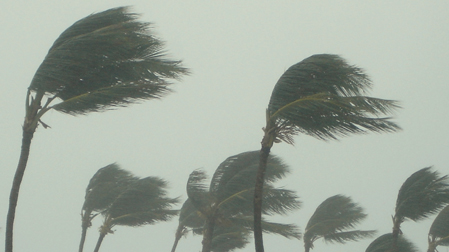World
Florida Launches AI-Powered Emergency Communications System – Radio World

Emergency management officials in Florida are harnessing the power of artificial intelligence to better protect residents from the threat of hurricanes and other natural disasters.
The new project involves technology from Futuri, a company familiar to radio broadcasters for its AI-based services.
Florida’s Division of Emergency Management, the University of Florida and Futuri jointly announced the launch of what they call the first AI-driven emergency broadcast system to deliver disaster communications.
They say the Broadcast Emergency Alerts and Communications Operations Network, or BEACON, combines the benefits of AI with the resiliency of broadcast technology to allow emergency managers and first responders to communicate with communities.
Former FEMA administrator Craig Fugate endorsed the service and said this could be a model for a national system. Futuri, after testing its reliability in Florida markets this coming year, expects to offer the emergency system to other states.
Multilingual
The system automatically captures, prioritizes and translates public safety information from authorized sources, localizing the content based on geography and using AI to voice radio broadcast updates and advisories. It can also translate them into multiple languages (something the FCC has been eyeing for EAS messaging).
“This critical information from state and local emergency managers is broadcast over traditional radio and TV airwaves and is also available via streaming and the free BEACON mobile app on iOS and Android. The system integrates directly into newsrooms and studios through a secure dashboard, allowing broadcasters across the state to access real-time content,” Futuri explained in its announcement. The tool includes radio and TV feeds that broadcast preparedness information even when there are no active disasters.
BEACON is set to roll out on 12 radio stations owned by the state university system of Florida. However, the system can be used by any commercial station in the state.
Daniel Anstandig, CEO and founder of Futuri, said work on the project began when state emergency management officials and the university identified a gap in the timely delivery of critical messaging. Futuri has a research and development partnership with the university’s College of Journalism and Communication, exploring new broadcast infrastructure technologies. (As we reported last year, the university was an early user of RadioGPT, the AI-based Futuri tool later renamed AudioAI.)
Angstandig noted that weather-based disasters are significant in Florida. “We set out to find ways to improve emergency communications infrastructure. Traditional emergency communication methods just often fail to reach enough people, especially during an evolving emergency. EAS has traditionally been an in-the-moment notification tool. BEACON was developed to provide communication before, during and after an emergency.”
Futuri is offering the online dashboard to every broadcaster in the state. The tool monitors activity from the State Emergency Operations Center in Tallahassee. “It’s a secure encrypted website that broadcasters can log into to follow exactly what is happening statewide, which then can be prioritized for a local area,” he said. Radio and TV stations in Florida that choose to use the dashboard will be able to access the content and play specific multilingual alerts as they see fit. Broadcasters will not incur a cost to use the system.
The Statewide EOC/Warning Point emergency operations center will use it to add content as they deem necessary, Anstandig says.
“BEACON then uses AI to prioritize messaging, who needs to receive it and in what language,” Anstandig said. “This all happens in real time through the portal. It gets information from the same system that drives content to EAS and WEA [Wireless Emergency Alerts], but it is not at all related to those systems.”
But BEACON is integrated with IPAWS, the Integrated Public Alerts and Warning System, so alerts in IPAWS messaging are captured in BEACON without a manual process, the developers said.
Feeds will be available for every major metropolitan area in the state via the mobile app. Florida residents were encouraged to download the app. Citizens in the Gainesville area can also tune in to a local HD4 signal there for live BEACON broadcasts.
Anstandig said several of the 12 university stations inquired about carrying the content feed 24/7 on their HD sub-channels. Those channels potentially could carry disaster and emergency preparedness information during non-emergencies. “The U.F. team has routinely spoken with a number of station leaders who have an interest in bringing BEACON to their local market once WUFT-HD4 89.1 Gainesville-Ocala goes live on Dec. 18,” he told Radio World prior to the announcement.
“The big void in emergency information right now is during recovery efforts,” Anstandig continued.
“In our study of emergency communications across the U.S., our country does a good job of delivering short bursts of information just in time. That is what EAS and WEA do very well — a tornado warning for instance. However, what’s missing is everything what happens before an event and the days after the crisis. That’s when information becomes very fragmented. BEACON can provide immediately actionable information to help survivors find help.”
Kevin Guthrie, executive director of the Division of Emergency Management, told Radio World the system was tested this year during Hurricanes Helene and Milton with some 4,000 tests.
He said BEACON ensures a unified, consistent message across platforms, thanks to the automatic capturing, prioritizing and translating of authorized public safety information.
“We can now push these emergency messages out to specific areas in English, Creole or Spanish. And not just those languages. I am from Jacksonville originally, where we have large Lithuanian and Yugoslavian communities, and if we [wanted to] use those languages we could, using University of North Florida radio,” he said.
The announcement was endorsed by Craig Fugate, a former FEMA administrator and executive director of FDEM. He was quoted by the organizations saying that a nationwide implementation would offer “an unprecedented opportunity to transform emergency messaging, with a unified platform for authorities to disseminate critical alerts and instructions in real time.”










